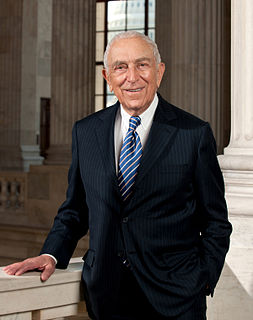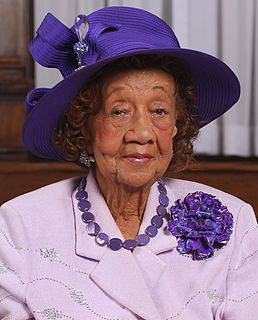A Quote by Kayleigh McEnany
Home to some of our nation's civil rights leaders, Harvard Law is not a bigoted hub of racism but a place where men and women of all races peacefully co-exist in pursuit of higher education.
Related Quotes
When Thomas Jefferson wrote the Declaration of Independence, declaring that all men were created equal, he owned slaves. Women couldn't vote. But, throughout history, our abolitionists, suffragettes, and civil rights leaders called on our nation, in reality, to live up to the nation's professed ideals in that Declaration.
What will solve our problems is a specific set of ideas built on bedrock principles that made America the greatest nation to begin with and applying those principles to the unique challenges of this new century. And those principles are not complicated. It begins with a notion that this nation was founded on a powerful spiritual principle, that our rights do not come from government. Our rights do not come from our laws. Our rights do not come from our leaders. Our rights come from God.
For many years now, I have been an outspoken supporter of civil and human rights for gay and lesbian people. Gays and lesbians stood up for civil rights in Montgomery, Selma, in Albany, Ga. and St. Augustine, Fla., and many other campaigns of the Civil Rights Movement. Many of these courageous men and women were fighting for my freedom at a time when they could find few voices for their own, and I salute their contributions.
Every civil government is based upon some religion or philosophy of life. Education in a nation will propagate the religion of that nation. In America, the foundational religion was Christianity. And it was sown in the hearts of Americans through the home and private and public schools for centuries. Our liberty, growth, and prosperity was the result of a Biblical philosophy of life. Our continued freedom and success is dependent on our educating the youth of America in the principles of Christianity.
The Civil Rights Act of 1964 was the most sweeping civil rights legislation of its day, and included women's rights as part of its reforms. Ironically, the section on women's rights was added by a senator from Virginia who opposed the whole thing and was said to be sure that if he stuck something about womens' rights into it, it would never pass. The bill passed anyway, though, much to the chagrin of a certain wiener from Virginia.
At the end of the day, these are issues that need to be discussed: femicides, among other things - immigrant rights, women's' rights, indigenous people's rights, animal rights, Mother Earth's rights. If we don't talk about these topics, then we have no place in democracy. It won't exist. Democracy isn't just voting; it's relegating your rights.
Public education is the key civil rights issue of the 21st century. Our nation's knowledge-based economy demands that we provide young people from all backgrounds and circumstances with the education and skills necessary to become knowledge workers. If we don't, we run the risk of creating an even larger gap between the middle class and the poor. This gap threatens our democracy, our society and the economic future of America.




































